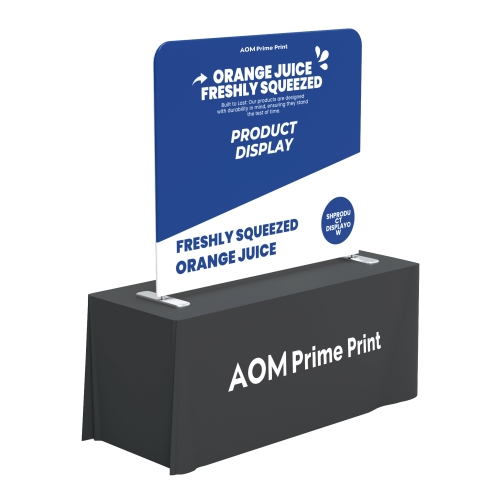Unlocking the True Value of Trade Shows: More Than an Expense, a Catalyst for Growth
March 9th 2025
In today's digital-first marketing landscape, trade shows might seem like a relic of the past. However, these in-person events continue to deliver substantial value that virtual alternatives simply cannot match. The key to success lies not in viewing trade shows as an expense, but as a strategic investment with measurable returns.
Beyond the Bottom Line: Rethinking Trade Show Value
Traditional ROI calculations often fail to capture the full spectrum of benefits that trade shows provide. While immediate sales and lead generation remain important metrics, a more comprehensive evaluation reveals multiple streams of value:
Knowledge Acquisition as Competitive Advantage
Trade shows serve as concentrated knowledge hubs where industry trends, innovations, and challenges converge. By strategically attending relevant seminars and observing competitor presentations, companies can:
- Identify emerging market gaps before they become apparent in market research
- Refine product development roadmaps based on firsthand industry feedback
- Anticipate regulatory changes that might impact business operations
- Benchmark your offerings against industry standards and competitor innovations
Relationship Economics: The Long-Term Value Proposition
The face-to-face interactions facilitated by trade shows create relationship capital that yields dividends long after the event concludes:
- Trust building happens more efficiently in person than through digital channels
- Complex negotiations that might take months via email can be expedited in a single conversation
- Cross-departmental connections form naturally, opening channels for future collaboration
- Informal settings allow for authentic exchanges that reveal unstated needs and pain points
Maximizing Lead Generation
One of the most compelling advantages of trade shows is their ability to generate high-quality leads. Unlike digital marketing efforts that may require extended nurturing, trade show interactions often involve decision-makers who are actively seeking solutions. The in-person nature of these events fosters immediate engagement, allowing companies to qualify leads on the spot and accelerate the sales cycle.
Strengthening Brand Credibility
Participating in a trade show demonstrates a company’s commitment to its industry. A well-designed booth and professional presence can reinforce brand authority, making potential clients more likely to trust and engage with the business. Thoughtful participation, such as speaking at industry panels or hosting workshops, further solidifies credibility and fosters long-term brand recognition.
Exploring Market Trends and Innovations
Trade shows provide an invaluable opportunity to stay ahead of industry trends. Observing competitors, engaging with new technologies, and attending keynote sessions offer insights into emerging best practices. Businesses can identify gaps in their offerings and adapt their strategies accordingly, ensuring they remain competitive in a fast-evolving marketplace.
Establishing Strategic Partnerships
Beyond client acquisition, trade shows facilitate networking with industry professionals, suppliers, and potential business partners. Strategic collaborations formed at trade shows can lead to joint ventures, supply chain optimizations, and mutually beneficial alliances that might not have been possible through traditional outreach efforts.
Enhancing Customer Relationships
Trade shows allow businesses to interact with their existing customers in a meaningful way. Face-to-face engagement fosters stronger relationships, increases brand loyalty, and provides valuable feedback for product improvement. Companies that invest in customer interactions at trade shows often see higher retention rates and increased word-of-mouth referrals.
Boosting Employee Development and Morale
Attending trade shows isn’t just beneficial for businesses—it also serves as a professional development opportunity for employees. Exposure to industry experts, competitor insights, and hands-on product demonstrations can enhance employee expertise and motivation. Engaged and knowledgeable employees contribute directly to a company’s growth and innovation.
Conclusion: Strategic Integration for Maximum Impact
Trade shows should not exist as isolated marketing events but as integrated components of your overall business strategy. When properly executed, they deliver unique value that complements digital marketing efforts while providing irreplaceable human connections and market intelligence.
By approaching trade shows as strategic investments rather than marketing expenses, companies can transform these events from costly obligations into powerful drivers of business growth and competitive advantage.













